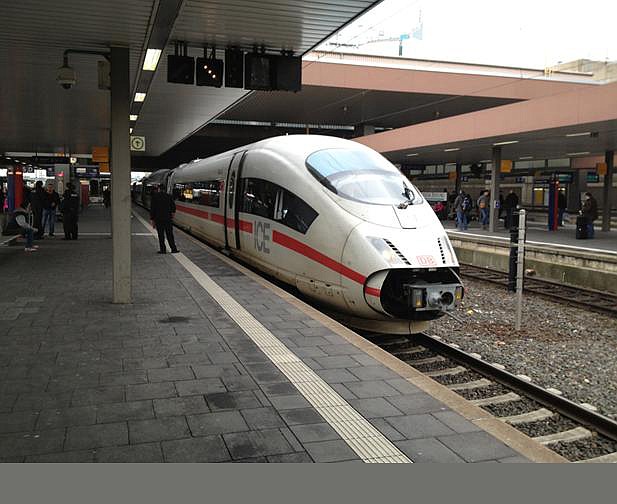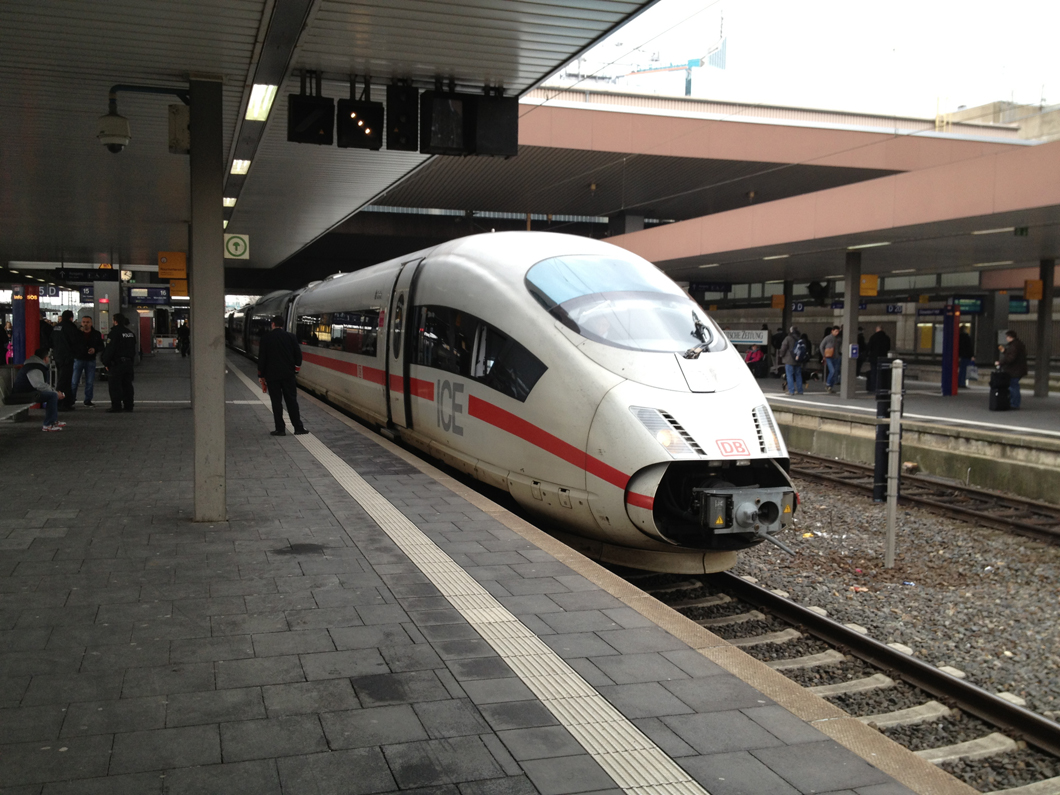German bullet train wins praise from Chattanoogans
Thursday, January 16, 2020
MUNICH, Germany - As Germany's bullet train whisked through central Germany on Thursday at nearly 180 miles an hour, cars speeding along adjacent highways appear to be barely moving.
"It's a lot different from the Amtrak trains I've ridden in the Northeast," said Greg Vital, president of Independent Healtcare Properties of Chattanooga and one of 40 Chattanoogans who rode the Deutsche Bahn ICE train from Dusseldorf to Munich.
Germany's fastest train won universal acclaim from the Chattanooga Area Chamber of Commerce delegation on Thursday as part of the group's weeklong trip through Germany.
"It was much smoother than I thought it would be and I would recommend it to anyone." said Dick Dillard, a former owner of Fast Break Athletics in Chattanooga. "I think if people get a taste of this kind of train riding, they are going to love it."
But bringing such a taste to Chattanooga may take a while, even in a city world famous for its Choo Choo. A decade and a half after the federal government first began putting money into studying a high-speed maglev train between Chattanooga and Atlanta, the train has yet to leave the station or even to get much on track.
An initial $7.9 million environmental impact statement has been prepared outlining four different routes along Interstate 75 for a new bullet train. Backers hope the Chattanooga-to-Atlanta link could be a starting piece for a high-speed line that could eventually run from Miami to Chicago.
The preliminary study was completed last spring and another $3.3 million of local funds have been pledged to match federal funds for a more detailed, $16.3 million study of the engineering and site analysis for any high-speed train.
APPROVAL
But before additional studies are made and funds spent, the Federal Railroad Administration and the Federal Highway Administration must approve the initial "Tier 1" environmental study.
Jill Goldberg, communications director for the Georgia Department of Transportation, said the final "record of decision" from the federal government may not come until mid to late 2015. Only then could the next study phase begin.
GDOT, which is handling the study of the proposed Atlanta-to-Chattanooga rail link, has asked for an expedited decision, and both FRA and FHA will try to decide on the case at the same time.
The Georgia Legislature has allocated the money for its share of the second environmental study.
Support for rapid rail also appears to be slowing in much of the country and Washington's budget shortfall threatens to undermine federal support for ambitous new projects.
Other states that once pushed for high-speed rail, including Florida and Wisconsin, have backed away from such projects, claiming they are too costly during tough economic times. California continues to pursue a high-speed rail network since 52 percent of the voters in 2008 backed a $9.95 billion bond measure for high-speed rail link from San Francisco to Los Angeles, which was originally forecast to cost $34 billion. Since then, however, the projected cost of the plan has swelled to $68 billion and a Public Policy Institute survey released this week found that only 43 percent of California voters say they would support the project at its current cost.
In total, about $11.5 billion has been secured for the California project, meaning an additional $57 billion is still needed. Backers of the plan said the federal government and private investors can make up the shortfall.
Despite the delays, Chattanooga backers of the high-speed rail project insist the project is still on track and eventually bullet trains will be needed as another transportation option in America.
"The recession changed a lot of things, but the money has been appropriated and we believe this is certainly a very worthwhile project that is moving ahead," said Wayne Cropp, president of the Enterprise Center in Chattanooga, which is coordinating Chattanooga's role in the multi-state project. "This could be another transforming project in Chattanooga's development and a key to our future."
Cropp said consultants working with the Enerprise Center are working to expedite federal approval of environmental studies to move the project analysis along much quicker.
MAGLEV
A high-speed train built on Maglev technology would be faster, smoother and more efficient than the old passenger rail service that Chattanooga lost in 1971 when Amtrak pulled out of Chattanooga. Maglev trains like the Shanghai Maglev train China has operated since 2005 could reach up to 300 miles an hour. China recently set a new record by successfully testing the longest high-speed rail line in the world, capable of covering 700 kilometers in only two and a half hours.
"That's getting to be aircraft speed and at that point, they're almost flying on the rail," said Dr. Will Sutton, dean of the UTC school of engineering. "It's amazing for a country like Germany to be able to get across it in only a few hours.. I'd like to see that technology come to America."
The train carries students, business leaders, families, tourists and others at speeds more than double the fastest Amtrak routes in the United States.
But its unclear if Americans are willing to give up their love affair with the automoible and climb on board the train.
"It's hard to get started in America," said Brian Anderson, president of the Greater Dalton Chamber of Commerce. "The Germans have developed an intermodal system in a tradition of using rail transportation."
But Anderson said a high speed rail line between Chattanooga and Atlanta would help ease traffic congestion and offer an important alternative for transportation for the future.

